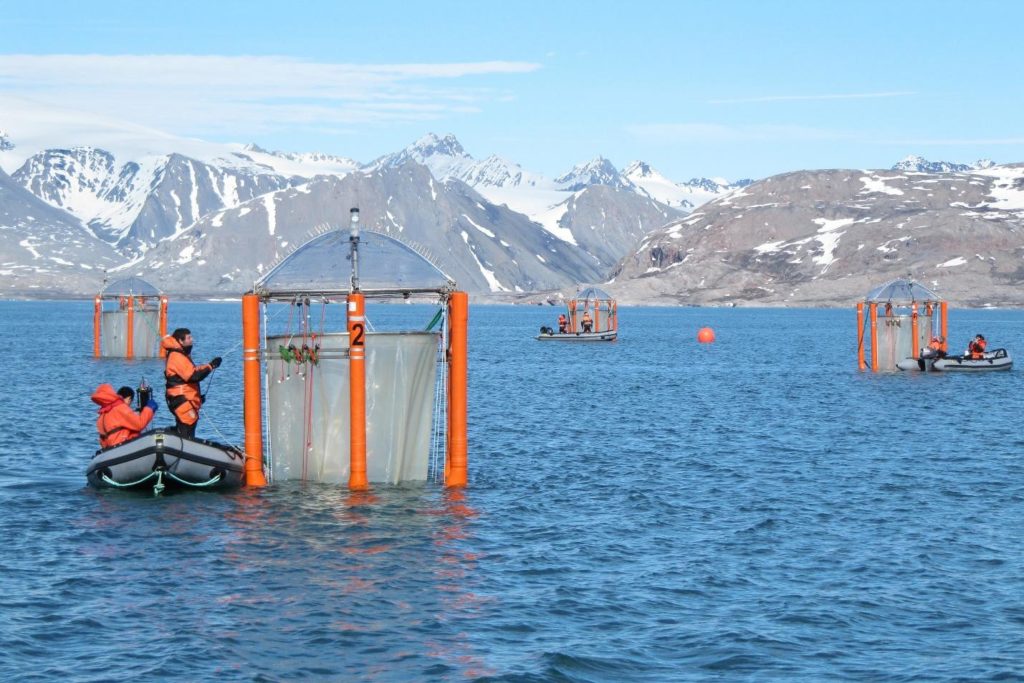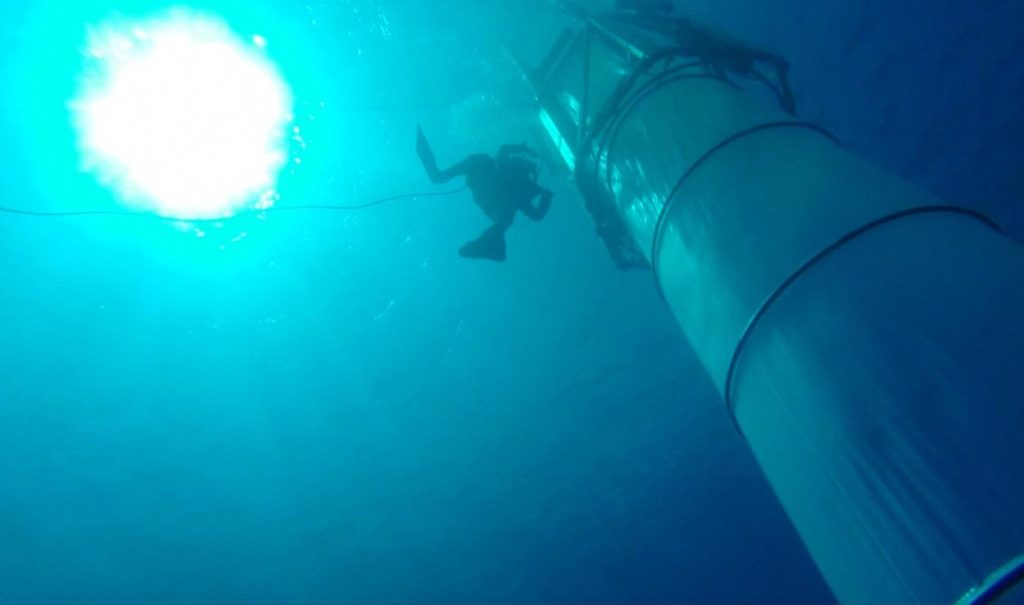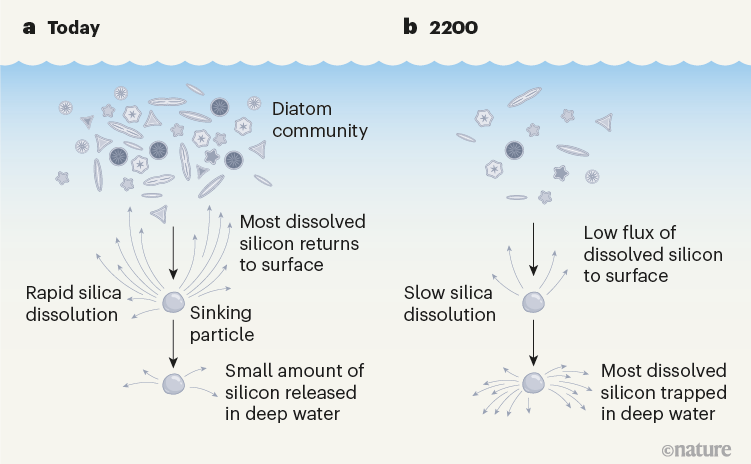Rising ocean acidity is threatening the population of the most common type of plankton, known as diatoms, one of the main oxygen producers on the planet and the primary food source for all marine life. Despite previous beliefs that diatoms actually benefit from ocean acidification, new research from the Helmholtz Centre for Ocean Research (GEOMAR) shows that diatom populations are extremely vulnerable to the effects of ocean acidification. Continue reading for a summary of the paper’s findings.
Background Information: How Ocean Acidification Affects Diatoms
Full Study: Decline of diatoms due to ocean acidification (Nature, May 2022).

Source: Ulf Riebesell/GEOMAR/European Geosciences Union
How Ocean Acidification Reduces Diatom Populations
In past years, scientists believed that diatoms are less affected than other marine organisms by the effects of ocean acidification. This was because diatoms rely on silica minerals to build their shells, rather than calcium carbonate, a substance that many other marine organisms rely on to build their shells and that is reduced by ocean acidification. In fact, some scientists previously argued that ocean acidification aids diatoms by increasing their ability to photosynthesize, and thus increasing diatom populations’ growth.
But, in a recent analysis, scientists explain how ocean acidification may reduce the population of diatoms at an alarming rate. Here’s what you need to know about it.
The study researched the effects of ocean acidification on the dissolution of the silicon shell of diatoms. The results show that acidified seawater significantly slowed the ability of diatoms to dissolve their silicon shells, ultimately leading to a lowered ability to gain nutrients through photosynthesis.
- The most common negative impact of ocean acidification on shell-forming marine species using calcium carbonates, such as oysters, clams, mussels, and corals, is a reduction in their capacity to form shells due to a lack of carbonate ions in more acidified seawater. While this chemical imbalance was not believed to affect diatoms due to their silicon-based shells, ocean acidification actually threatens diatoms in another way.
- GEOMAR Helmholtz Centre for Ocean Research Kiel researchers used data from huge test tubes known as Mesocosms. These tubes were placed in different ocean biomes all around the world. Mesocosms can contain a large volume of ocean water inside, allowing researchers to manipulate the water parameters, such as increasing or decreasing the acidity level without harming the ocean ecosystem outside.
- Using an Earth system model, the researchers utilized the collected data to simulate the negative effects of ocean acidification on diatoms in the future, on a worldwide scale.
- Researchers discovered that acidified seawater slows the ability of diatoms to dissolve their silicon shells, which forces them to sink into the deeper parts of the ocean. Because of this, the abundance of diatoms on the ocean surface is lowered.
- Researchers concluded that since diatoms needed to be at the surface water to get light to renew their shells, forcing them to sink may significantly decrease their population around the world at an alarming rate.

(Source: © Ulf Riebesell GEOMAR/University of Tasmania, IMAS)

(Source: © Nature)
Read more:
- How Ocean Acidification Affects the Development of Several Marine Species
- Is Ocean Acidification Reversible?
- How Are Whales Affected by Ocean Acidification?
Sources:
“Decline of diatoms due to ocean acidification. Study shows unexpected negative impact by CO2 on important plankton group” Science Daily, May 25, 2022
https://www.sciencedaily.com/releases/2022/05/220525182619.htm
“Research reveals ocean acidification is triggering a decline in diatom” UTAS, IMAS, May 31, 2022